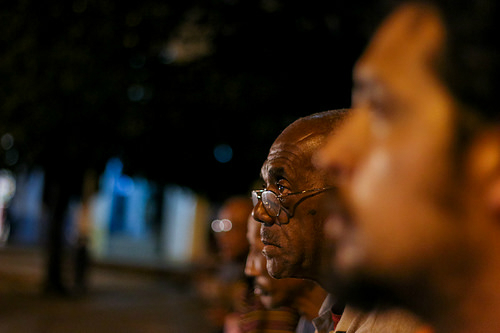How will Trump respond to Obama’s unexpected move ending a 22-year-old exemption policy for Cuban immigrants
 So far in his presidency, Trump has been quite clear about his intentions to dig up seeds sown during the Obama administration. But what does that mean for Cubans? Consider that 8 days before leaving office, Obama attempted to normalize relations by unexpectedly ending a 22-year-old policy that exempted Cubans arriving in the U.S. without a visa from following the typical requirements for immigrants. Many Cubans in the U.S. strongly oppose these actions and believe that the sanctions should be back in place if and until the Castro regime no longer runs the country (and Cuba becomes democratic). Whether Trump will take a different position than Obama is unclear.
So far in his presidency, Trump has been quite clear about his intentions to dig up seeds sown during the Obama administration. But what does that mean for Cubans? Consider that 8 days before leaving office, Obama attempted to normalize relations by unexpectedly ending a 22-year-old policy that exempted Cubans arriving in the U.S. without a visa from following the typical requirements for immigrants. Many Cubans in the U.S. strongly oppose these actions and believe that the sanctions should be back in place if and until the Castro regime no longer runs the country (and Cuba becomes democratic). Whether Trump will take a different position than Obama is unclear.
The Background on “Bleeding” Cuba
The Cuban Adjustment Act of 1966 assumed that Cubans migrating to the United States were political refugees in need of protection. Therefore, the act made it possible for Cubans to apply for a green card while they were in the United States, if they were admitted or paroled into the United States, and were physically present in the United States for at least one year. Because of this policy, immigration authorities paroled Cubans who either reached the United States via land or U.S. territorial waters, thereby allowing Cubans to get a green card after one year. This law effectively made it much easier for Cubans to obtain a green card than for immigrants from other countries.
Cuban authorities did not take kindly to this policy as they felt the United States was “bleeding” their island. In 1995, in an effort to somewhat restore relations with Cuba, the Clinton administration enacted the infamous “wet foot, dry foot” policy. Cubans who reached the United States via land would still be paroled and allowed to pursue residency as before. Cuban migrants who were intercepted at sea however, would be sent back to Cuba or resettled in a third country.
This “wet-foot, dry-foot” policy was the policy that President Obama ended a few weeks ago, in an effort to continue to restore diplomatic relations with Cuba. Whereas previously, Cubans were almost always paroled into the United States if they arrived by land, now the Department of Homeland Security will treat Cubans the same as migrants from other countries. Now to enter the United States, Cubans will usually need visa. While this does not repeal the Cuban Adjustment Act of 1966, it makes it much more difficult for Cubans to get a green card under that Act.
Wet-Foot, Dry-Foot Going Forward
While the end of the “wet-foot, dry-foot” policy will make it much more difficult for Cubans to immigrate to the United States, immigrating for them is still much easier than it is for immigrants of other countries. If Cubans manage to be admitted or paroled, then under most circumstances they will be eligible to apply for a green card after one year of living in the United States. This is a benefit the United States does not give to immigrants of any other country. This benefit will continue until and unless the Cuban Adjustment Act of 1966 is repealed.
Immigration Help for Cuban Nationals
If you are a Cuban national here in the United States without U.S. permanent residency, we strongly recommend you contact Shaftel Law as soon as possible to discuss your immigration status and possible residency.
Photo Credit: Alejandro Cerón Flickr via Compfight cc
